Carmakers put on brave glitzy face in Geneva
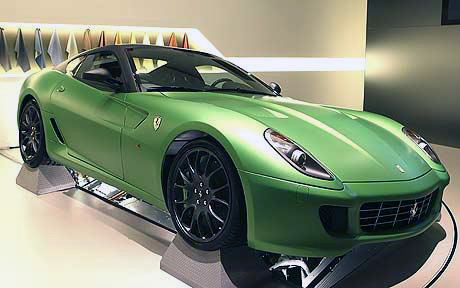
It is show time in Geneva as car companies put on a cheery face and unveil a glitzy array of new models, especially small cars and hybrids.
With 100 world and European premieres, carmakers are hoping to catch the consumer’s eye at the 80th Geneva International Motor Show, which opens on Thursday. But beyond the glamour, the road to recovery remains a bumpy one.
More than 700,000 people, including 10,000 journalists, are expected to pour through the doors of the huge Palexpo exhibition halls over the next ten days to ogle at the new got-to-have cars.
“The atmosphere is excellent,” Rolf Studer, general manager of the motor show, told swissinfo.ch. “Unlike the Tokyo or Frankfurt shows, we’ve managed to rent 100 per cent of our available exhibition area. There was even a waiting list.”
Car firms’ budgets may have been slashed, but there is a bumper crop on view, including the Audi A1 supermini, launched by pop singer Justin Timberlake, the Alfa Romeo Giulietta, the Nissan Juke hatchback crossover and new VW Touareg off-roader. Other show stars include the five-door Mini Countryman and a European version of Ford’s third-generation Focus.
Alongside a strong focus on ever-smaller vehicles, the flurry of launches has also been dominated by new technologies, as companies try to pull ahead of competitors – or not get left behind.
Hybrid buzz
There is a major buzz this year over hybrid solutions. Trouble-hit Toyota launched its full hybrid Auris HSD alongside a Prius plug-in hybrid. The firm aims to have a hybrid across every model range by 2020.
Mercedes unveiled its first ever diesel hybrid and BMW showed off a concept version of its 5-series known as ActiveHybrid, which promises to cut emissions and fuel consumption by up to ten per cent. Audi, Nissan, Chevrolet and Mitsubishi all have various hybrid and electric vehicles in the pipeline.
Even supercars are getting in on the act. Ferrari revealed a prototype of a hybrid version of its 599 GTB Fiorano and Porsche touted hybrid versions of its new Cayenne S off-roader and a 911 GT3.
“In the SUV segment social acceptability is very important for Porsche customers,” said Klaus Berning, Porsche executive vice president for sales and marketing. “It’s absolutely the right moment to launch this technology.”
Expensive niche market
But IHS Global Insight analyst Rebecca Lindland said many automakers were only producing hybrids to improve their image.
Drastic regulation and petrol price increases may be the only way to push consumers – and manufacturers – to embrace hybrids in bulk numbers, she said.
Despite industry enthusiasm, hybrids remain an expensive niche market and face competition from increasingly efficient petrol and diesel solutions. Only one per cent of industry sales were hybrid or electricity-powered vehicles last year. Pricewaterhouse Coopers automotive institute expects to see a small rise to four per cent by 2015.
Boris Vetsch, head of the e’mobile organisation in French-speaking Switzerland, said high prices were the primary barrier, but he also bemoaned the lack of government incentives to encourage the Swiss to buy green cars.
“Environment and Transport Minister Moritz Leuenberger has a philosophical approach. He’s behind these new generations of cars but at the same time he needs the tax money which is raised from petrol,” he said.
Cautious mood
Despite the exuberant new Geneva launches, behind the scenes car executives were in a cautious, somber mood.
Statistics released this week showed car sales rose sharply in February in France, Italy and Spain as “cash-for-clunkers” scrappage programmes lifted business, but the European carmakers are bracing for tougher times ahead as governments phase the schemes out.
Carlos Ghosn, the chief executive of both Renault and Nissan, predicted that the European market would shrink by ten per cent this year. Fiat Chairman Luca di Montezemolo also described a “very difficult spring” in western Europe. While there is some good news from healthier growth in China, some officials talk about not achieving a semblance of normality until 2012.
“The crisis is not over yet. We have surely reached the bottom and are slowly climbing upwards but not as steep as we would have liked, ” said Berning.
In Switzerland car sales dipped by 7.8 per cent in 2009, but there are signs that they have started to pick up (+5.8 per cent in January 2010).
“But we had better prepare for another difficult year,” said Max Nötzli, President of Auto-Suisse.
Simon Bradley in Geneva, swissinfo.ch
The 80th Geneva International Motor Show, which runs until March 14, is expected to attract some 700,000 visitors.
Around 100 world and European premieres are announced, with 16 dedicated to electrical cars alone. Around 40 per cent of visitors travel from outside Switzerland, with many from neighbouring Germany, France and Italy.
The organisers claim that the Geneva Motor Show generates SFr300 million ($254.3 million) in direct and indirect income.
This year’s Swiss president, Doris Leuthard, opened the show with an appeal to car makers to “significantly” reduce fuel consumption and carbon dioxide emissions.
She also said it was essential to introduce measures to meet the challenge of growing road congestion, saying road pricing was one possible means, or by promoting an “intelligent form of mobility” to convince people to leave their car at home and take public transport when that is the best option.
The best-selling car in Switzerland is the VW Golf. After VW, the most popular brands are Audi, Renault, Ford, Opel and Toyota.
In 2009 Swiss garages sold 266,018 cars – 7.8 per cent fewer than in 2008. But there are signs that sales have started to pick up: +5.8 per cent in January 2010, compared with a year earlier.
There are some 4.6 million cars in circulation in Switzerland. Since 1970 the number of vehicles per 1,000 inhabitants rose steadily. But this figure dropped from 610 in 2008 to 597 last year.

In compliance with the JTI standards
More: SWI swissinfo.ch certified by the Journalism Trust Initiative

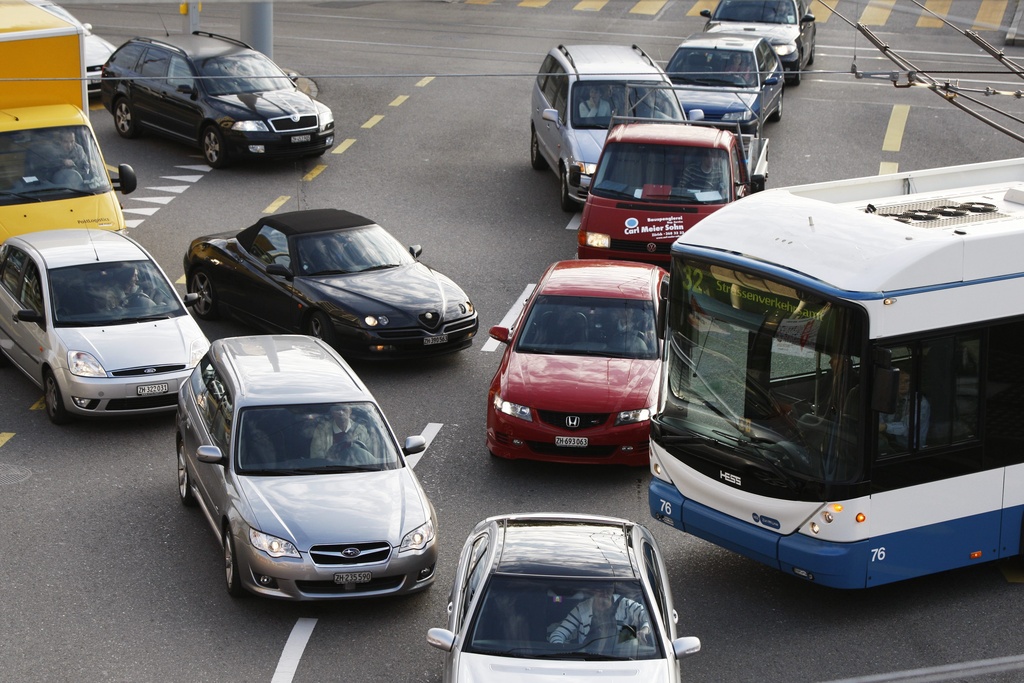
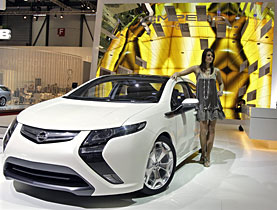
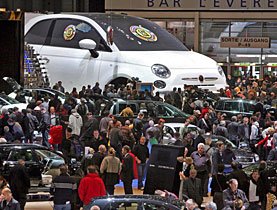
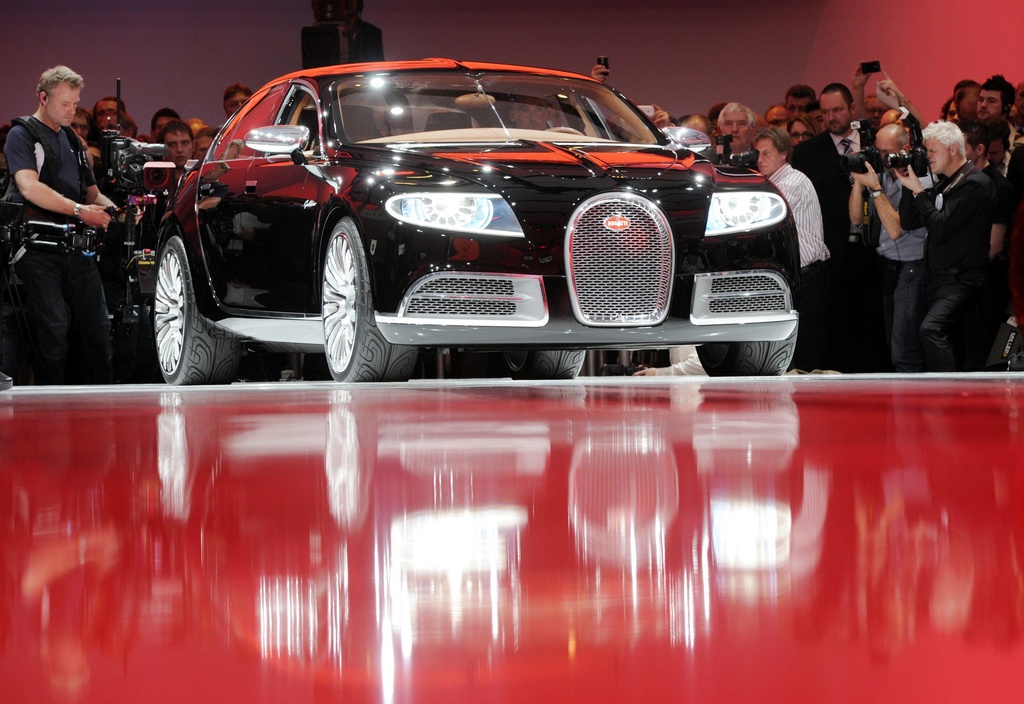
You can find an overview of ongoing debates with our journalists here. Please join us!
If you want to start a conversation about a topic raised in this article or want to report factual errors, email us at english@swissinfo.ch.